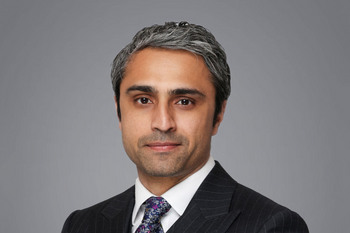
In 2007, during the course of my pupillage, I saw an advert in Counsel magazine for the Bar Council’s Law Reform Essay Competition.
My attention was drawn to it at the time because of the prize money; might I really be given £3,000 (which I think was the award for the winning entry at the time) if I wrote a good enough essay on law reform? But what law needed reforming?
It seems a long time ago but one issue which had caught my attention back then was the UK’s response to the threat of terrorism. Having heard Tony Blair declare “the rules of the game are changing” I was worried that we may lose something worth keeping in the pursuit of terrorists, certainly if the pursuit became a pursuit at any cost.
So that gave me a topic and I wrote an essay on control orders, and much to my surprise won the runner-up prize.
I found the process of writing a 3,000-word essay on the reform of control orders challenging and rewarding.
Law reform is hard: you have to know (a) what the law is, (b) how and why it might be changed and (c) be able to express that change articulately using the language of law.
That is a lot to fit in, even in a 3,000-word essay.
I’m convinced that the process (learning to ruthlessly slash words which didn’t progress my argument for reform of control orders) helped me with my written advocacy.
I also got to meet and speak with Lady Hale (one of my legal heroes) who presented the awards to the winners. Incidentally Lady Hale had recently handed down judgment in a case concerning control orders.
Since putting myself through that process I’ve never lost my curiosity and interest in law reform and I am currently a member of the Bar Council’s Law Reform Committee.
That involves hugely interesting debates and discussions with eminent members of the Bar on proposed or prospective law reform.
For example, we recently had to consider whether and how to respond to the Government’s call for evidence on one of the hot legal topics of the day: Strategic Lawsuits Against Public Participation (snappily known as SLAPPs).
I also had the privilege to be part of a marking panel for last year’s entrants to the essay competition. The standard was incredible and the diversity of ideas inspiring.
So if you fit into one of the eligibility categories (“undertaking the academic or vocational stage of training for the Bar, including those studying for a law degree, GDL or the vocational component”; “those currently seeking or completing pupillage”; and “those in the process of transferring to the Bar”), I would encourage you to have a go.
You might even win one of the prizes (£4,000 for the winner; £2,500 for the runner-up; £1,500 for the best CPE/GDL entry; £1,000 for the runner-up CPE/GDL entry; 2 x £500 highly commended awards).
And you might find an interest you can take and develop throughout your career.
John-Paul Swoboda is a barrister at 12 King’s Bench Walk who mainly practises in asbestos litigation, personal injury and clinical negligence, and private international law. He is a member of the Bar Council’s Law Reform Committee.
Find more about the Bar Council's Law Reform Essay Competition 2022. Prizes are generously sponsored by the City Law School, University of London.